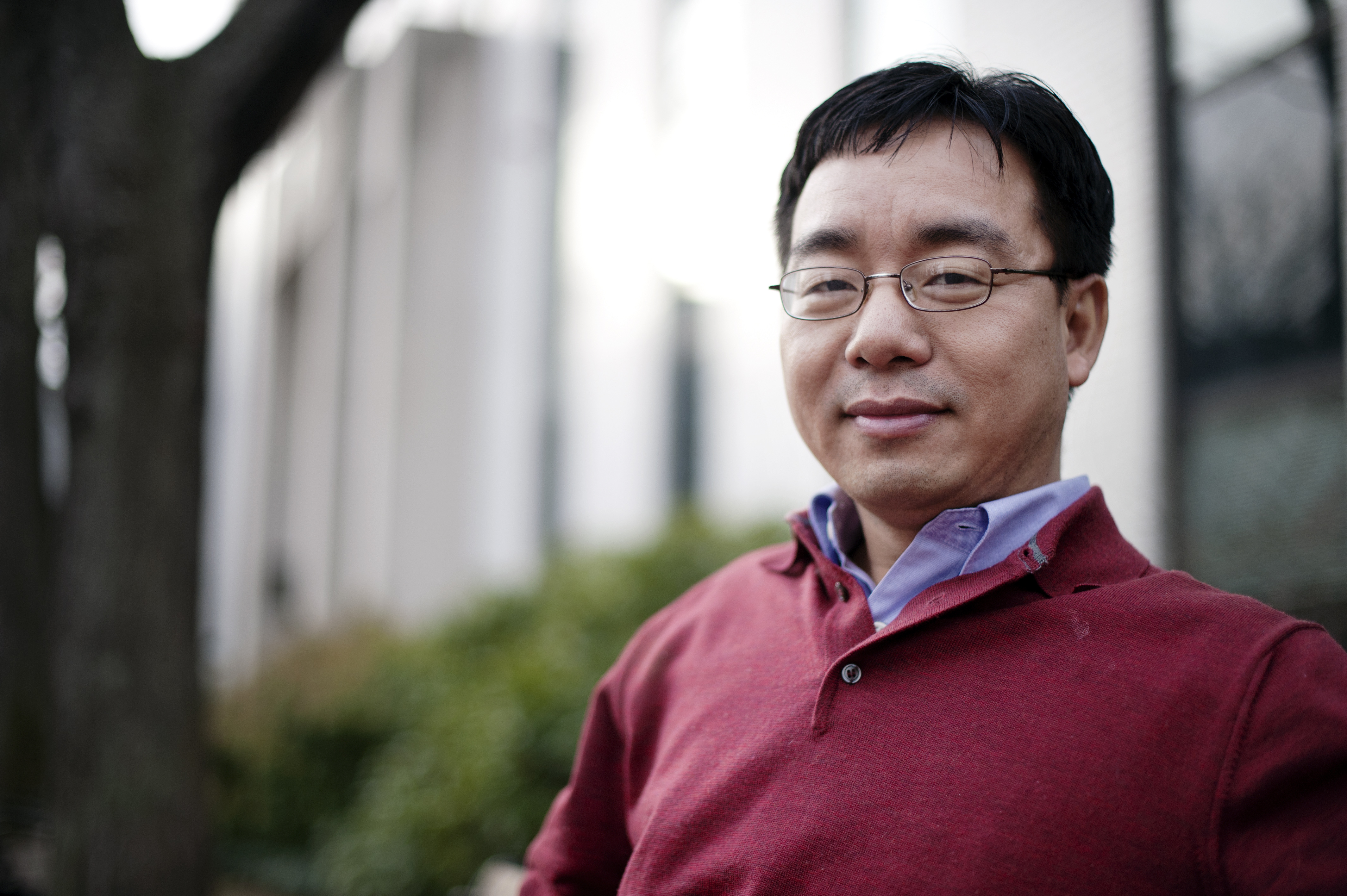by Matthew Del Mastro, Biology, 2017
Though his career has focused on life at the microscopic scale, Professor Yunrong Chai knows that his field of microbiology has enormous implications for society. “They consider this a research direction almost comparable to cancer and AIDS research” Chai said in reference to a recent White House initiative to boost research about the human microbiome. This month, the importance of Chai’s own research on bacterial biofilms was acknowledged when he and his student collaborator Kevin Gozzi received a CAREER award from the National Science Foundation (NSF).
A biofilm is an aggregation of bacteria living together on a surface. “A lot of people think that bacteria are only living on their own” Gozzi says, “but we want to study them at a multicellular level because that’s how we find them in nature.” Biofilm formation is a great way for bacteria to coordinate and boost their survival chances, but it can have negative consequences for humans when biofilms form in the wrong places. Biofilms can form in the mouth, and this can lead to tooth decay. More seriously, biofilms are associated with a number of acute and chronic diseases that can be hard to treat. Pseudomonas aeruginosa can form biofilms in the lungs of cystic fibrosis patients, and once it is established it can be almost impossible to eradicate.
To manage these biofilms, we first need to understand how they work, and that’s where Chai and his team step in. Although the biofilm is composed of many single celled organisms, it displays characteristics of a multicellular organism such as the process of aging. Chai aims to create a map of the biofilm life cycle that can shed light on how biofilms age and the mechanisms that the bacteria utilize to prevent ageing.
The importance of Chai’s mission was emphasized by university distinguished professor and biology department chair Dr. Jonathan Tilly. He stressed the “cutting edge” nature of Chai’s work and affirmed that the biofilm studies are integral to the department’s efforts in microbiology. “Speaking on behalf of all Biology faculty members,” said Tilly, “we are thrilled to hear that Professor Chai was selected by the National Science Foundation.”
The NSF award will give Chai and his graduate students the resources to unravel the mechanics of biofilm ageing over the next five years. The award will also fund an undergraduate co-op researcher to join Chai’s team and receive hands-on learning experience.
Professor Chai credits this balance between the scientific and pedagogical aspects of his work at Northeastern for his recent NSF achievement. He emphasized that the CAREER award is one of the biggest grant awards given to investigators who support both research and education initiatives, and he is excited that the grant will fund his passion for teaching and community outreach in addition to his research.
The success of Chai’s mentoring is perhaps epitomized by Kevin Gozzi, Chai’s student collaborator on the NSF proposal. He made waves as an undergraduate in 2015 when he and Chai co-authored a paper detailing biofilm formations. Gozzi, now pursuing his PhD at MIT, discovered his driving passion as a student in Chai’s lab. “When I got to Northeastern I didn’t think I was going to go into biological research,” he says. But getting an opportunity to investigate Chai’s research questions alongside the professor transformed his outlook. Suddenly, he recalled, “I wasn’t even working for the experience or [laboratory] techniques. I was genuinely fascinated and wanted the answer.”
Professor Chai understands the importance of this kind of experience. He credits “motivation and passion” as the two traits that have allowed him to succeed in his field. In order to develop these traits, Chai is confident that students need to go beyond the classroom and get behind the bench like Gozzi did. “Experiential learning is different from textbook learning” he mused. “You have to be there.”

